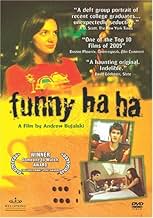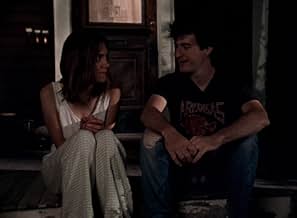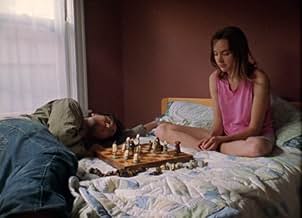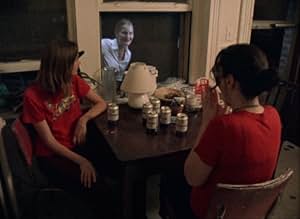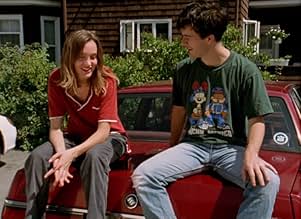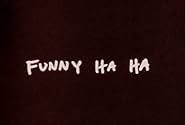First time filmmaker Andrew Bujalski's extremely low-budget feature "Funny Ha Ha" has many of the hallmarks of an early John Cassavetes film: grainy camera-work, minimalist storytelling, and naturalistic, ad lib performances.
Bujalski's cast of characters is made up entirely of white urban youth in their early to mid 20's - that awkward period in life after an individual has finished college yet before he has moved on to building his own career and family. Given what appears to be their first real taste of freedom and independence, the characters do little but sit around, get drunk, and talk about their romantic relationships, but Bujalski observes all this without hysteria and judgment, thereby lending the film the aura of real life being caught on film. The focal point is an attractive young woman named Marnie (Kate Dollenmayer) who drinks a bit too much, seems vaguely directionless and lacking in energy, and is somewhat inexperienced in the ways of love, but who, nevertheless, seems reasonably well grounded and knows her own limits as a person.
"Funny Ha Ha," despite its occasional raggedness and self-indulgence, is blessedly free of contrivance and melodramatics. These may not be the most goal-oriented or socially-conscious youth we've ever encountered in the movies, but neither are they the most troubled or self-destructive. They seem like pretty ordinary kids living in the moment and only vaguely aware that there's a world outside of themselves that they are destined to become a part of in the very near future.
The beauty of the dialogue rests in its ability to capture with uncanny accuracy the way people in the real world actually speak. The characters interact in ways that are genuine and believable, and life just seems to be unfolding as we watch it on screen. This is due in small measure to the fine performances from a cast of virtual unknowns who know how to appear relaxed, honest and natural in front of the camera.
With its improvisational and off-the-cuff film-making style and its abrupt, the-camera-just-ran-out-of-film ending, "Funny Ha Ha" makes us feel as if we are eavesdropping on the daily lives of a handful of relative strangers. Lucky for us, they turn out to be people in whom we can see something of ourselves reflected, and with whom we enjoy spending our time.


